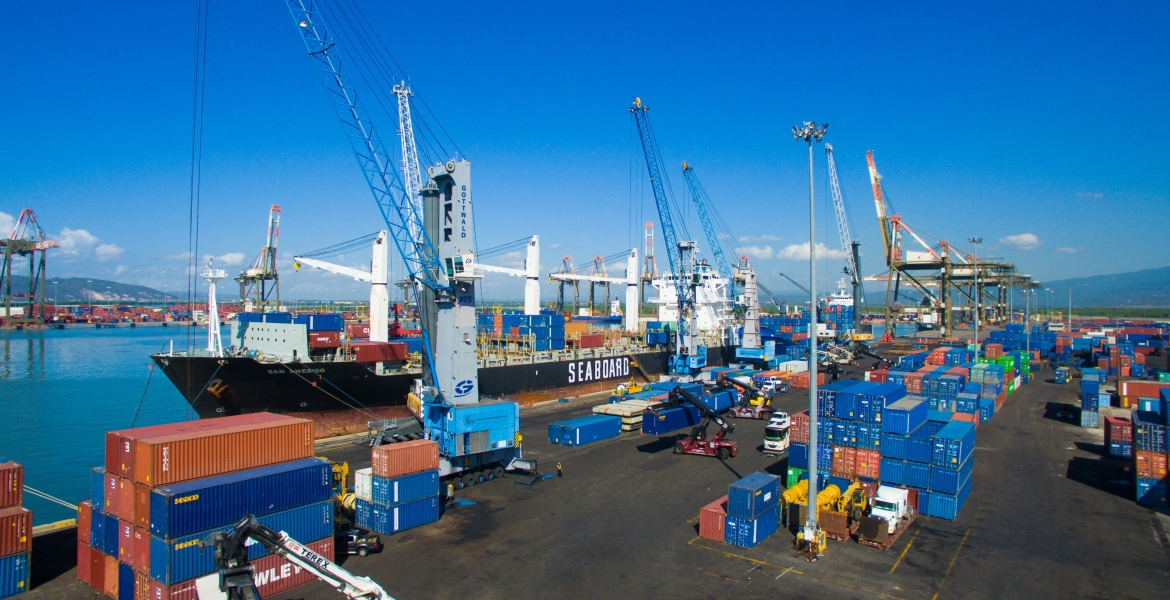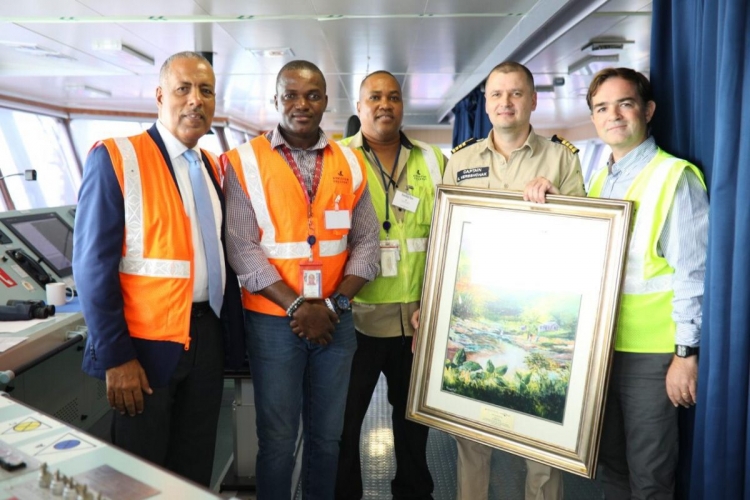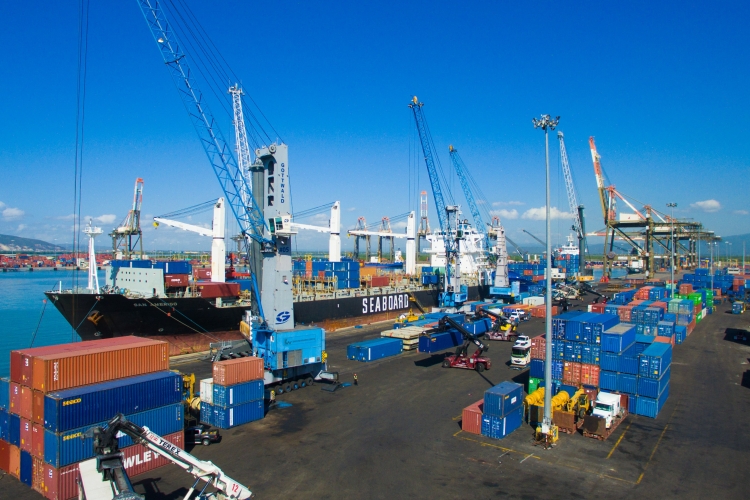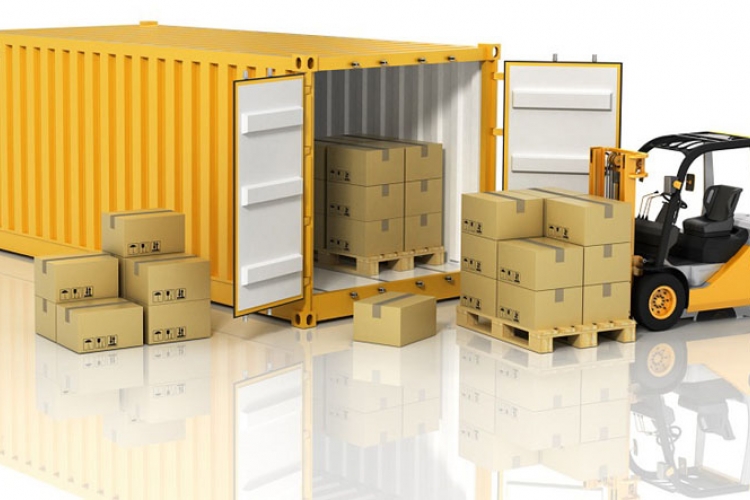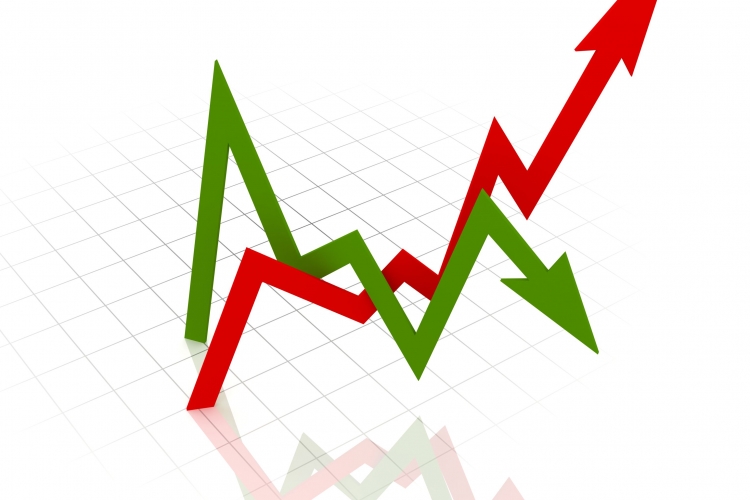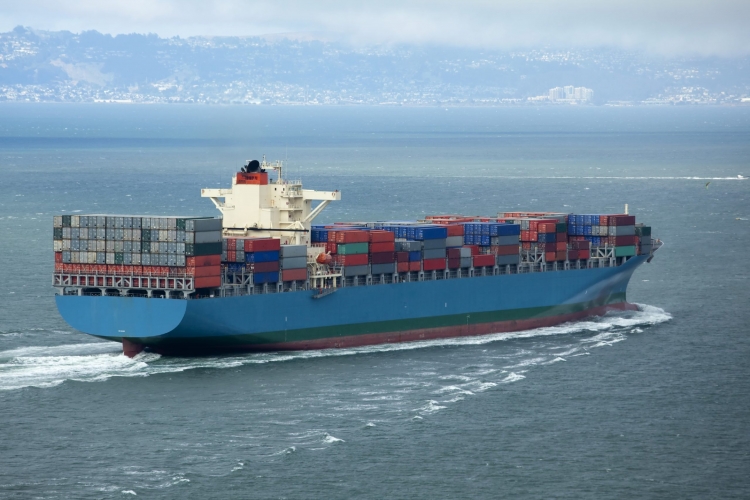Kingston Wharves Maintains a Positive Outlook
Chief Executive Officer of Kingston Wharves, Mark Williams on Thursday declared that the “KWL ship is steady” as he reviewed the company’s 2019 performance, reported on its 2020 first quarter performance and delivered the outlook for the rest of the year and beyond.
Noting that Kingston Wharves was observing its 75 Anniversary in 2020, he said this milestone symbolised the company’s maturity and the solid foundation laid by its ‘forefathers’.
Mr. Williams noted that in spite of the challenges posed by the COVID-19 pandemic the company was positioned for growth, and was forging ahead with implementing its strategic imperatives focused on people, process, plant and profits. “Kingston Wharves is stable and solid. We have an experienced board, a competent management team and a strong balance sheet” the CEO said.
He reported that the group achieved revenue of $7.9 Billion in 2019, an increase of 9% over the previous year, and operating profit of $3.1 billion or a 26% increase over the previous year. Some 72 % of the revenue came from Terminal Operations and 28% came from the Logistics Services Division.
The company’s achievements in the Terminal Division, which earned $5.7billion, were driven by over 120,000 motor moves, an increase of 20% over the previous year. Growth in volumes in break bulk and bulk cargo, which were up by 6% and 13% respectively also contributed to the division’s performance. These positive performances offset a marginal reduction in container moves.
The CEO disclosed that the Logistics Services Division earned $2.2 billion in 2019, and was a fast growing segment of the company’s service offerings, with revenue growing by 48% between 2017 and 2019.
He explained that Kingston Wharves over 340,000 square ft. of warehouse space, on-dock and off-dock motor vehicle capacity, allowed the company to provide customized logistics services to businesses in a range of sectors, including the auto industry, telecommunications, manufacturing, retail, food processing and others.
Services included inventory management, order picking and packing, warehousing and returns, short-term and long-term lease among other services.
The CEO also noted that Kingston Wharves continued to strike a good balance between consistently delivering solid returns to its investors while maintaining the long-term viability of the company.
Kingston Wharves declared dividends of $772.31 million in 2019, an increase of 20% over 2018 and the highest dividend since it listed on the JSE in 1995. Earnings per share in 2019 was $1.82, also 20 % above 2018, Mr. Williams said.
For the first Quarter of 2020, the company achieved revenues of $1.88billion and operating profit of $735.3 million. The Terminal Division earned revenues of $1.4 billion, an increase of 1% over 2020. The division contributed $595.9 million to operating profit in 2020, an increase of 21% over the previous year. The Logistics Services Division contributed $509 million to revenue and $140.4 million to operating profit, a marginal reduction over last year.
Mr. Williams announced that Kingston Wharves will execute over $1billion in infrastructural projects in 2020 and that the company contributed some $3 Million towards the Government’s efforts to purchase ventilators as part of its COVID-19 response.
The CEO said that Kingston Wharves took steps to manage the COVID-19 crisis, which enabled the company to emerge in a positive position. He said the company handled the COVID-19 crisis in four phases avoid/dodge, defend, restore and re-invent.
“The dodge phase saw us addressing the immediate COVID-19 health, safety and business continuity challenges of our workforce, customers and business partners; we installed sanitisation stations at strategic locations; instituted work from home protocols; issued safety gear and implemented a system of sanitisation and temperature checks, among other measures,” Mr. Williams elaborated.
The other phases entailed addressing the immediate cash management, supply chain and sales resiliency issues; maintaining the core business at an acceptable profit level even in the event of a prolonged COVID-19 crisis, and re-imagining winning in the new normal, the CEO explained.

